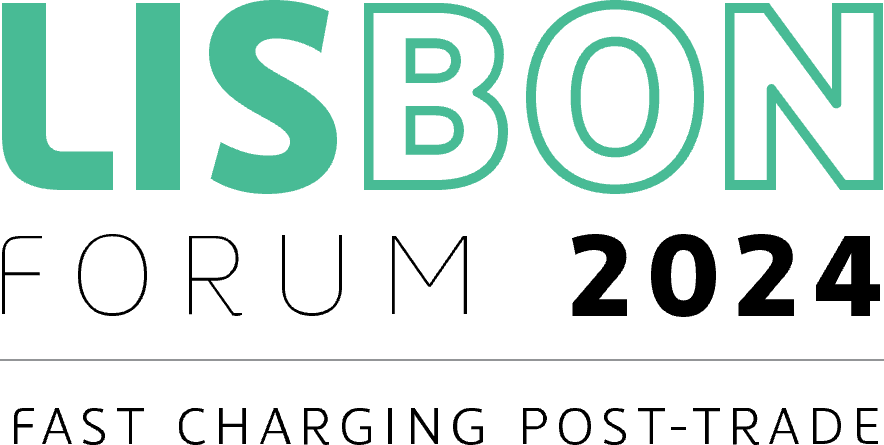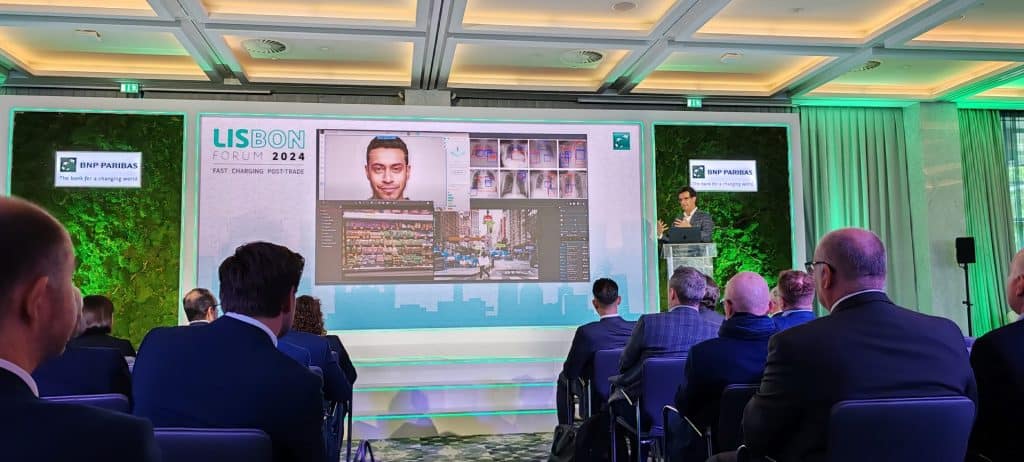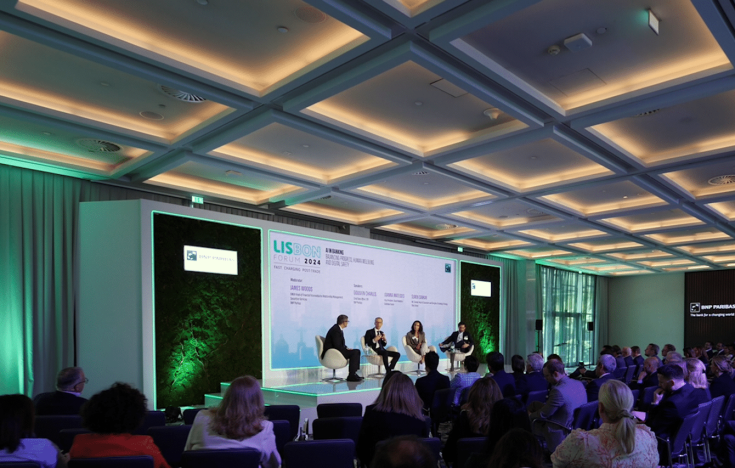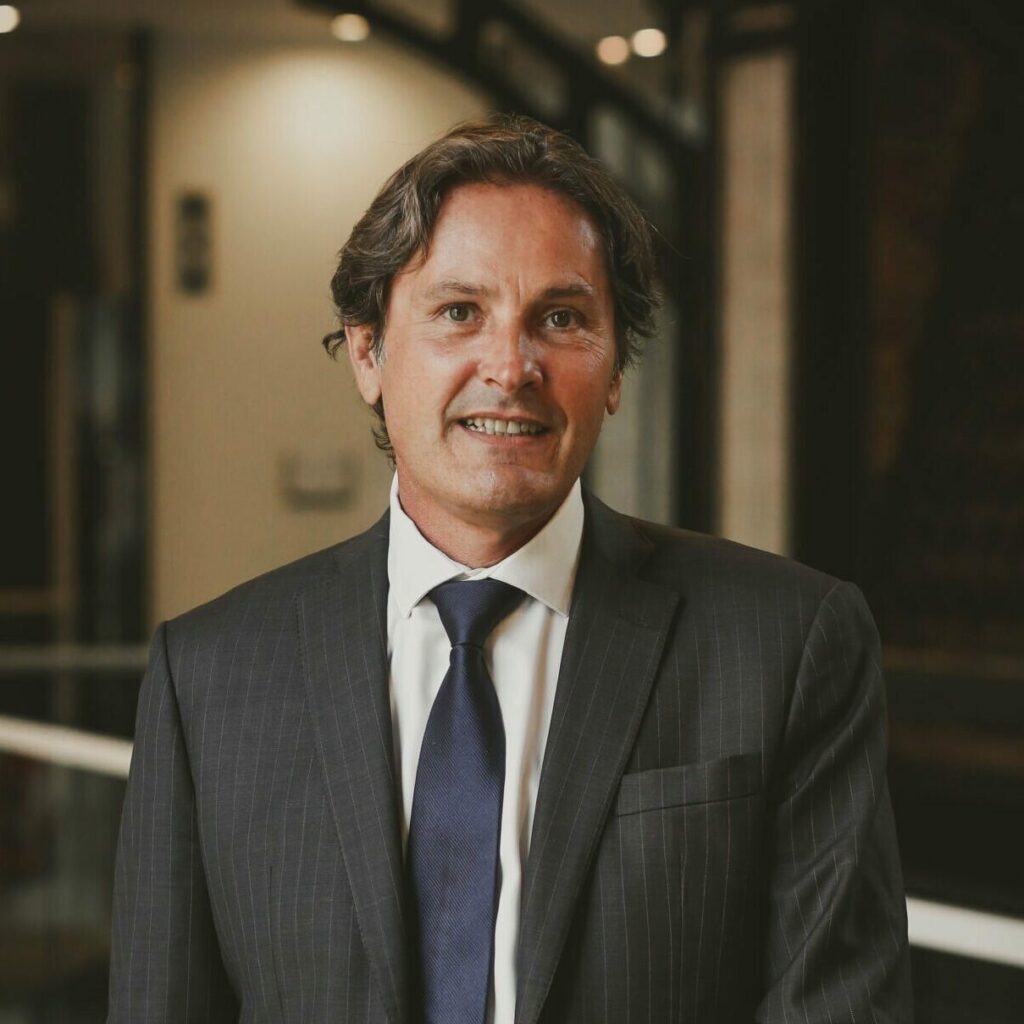We were delighted to welcome our clients and partners to the 9th edition of the annual Lisbon Forum, on 14 and 15 May. The annual industry forum gathers leaders of the post-trade industry to debate market trends and prepare for the opportunities and challenges that lie ahead. The event offers the perfect opportunity to build client relationships, promote market expertise, and offer a window into the development of our global centres of excellence in Portugal, Poland and India.

Our theme this year was “Fast charging post-trade”. Across two days of workshops and panels, participants exchanged views on whether post-trade is fast charging, how it can be accelerated whilst minimising risk, and what direction our industry should take.
Read the key themes that emerged from the event below.
Recharging European capital markets
Why are capital markets important? What are the challenges facing European capital markets? Two questions that began a fascinating discussion.
Our panellists first outlined the importance of capital markets to companies, investors, and society. Then the discussion moved to the issues impacting the European capital markets: The comparative lack of retail investment, and the complexity of both the markets and regulation, mean European capital markets aren’t driving growth like the US. In trading, frictional cost due to market fragmentation and the growth of passive investing reduces trading volumes. Despite developments in clearing, more cost efficiencies via Central Counterparty (CCP) consolidation are a necessity. Settlement efforts must focus on efficiency and interoperability, as T2S hasn’t increased cross border flows as intended.
Although there are some recent encouraging signs across M&A and IPO activity, more needs to be done. So, how do we make Europe more competitive? Stakeholders need to act in a unified way. They must push for tax harmonisation, adjust regulation of pensions to allow investment in equity markets, and continue to build a European culture of retail investing.
Artificial Intelligence (AI) in banking: the potential
Digitalisation and technology are standard topics at any post-trade event. But the hot topic is now AI and particularly Generative AI.

Our keynote speaker Behshad Behzadi, CTO and Chief AI Officer at Sportradar, provided his vision of ongoing developments. The shift from traditional programming to traditional AI, and now to Generative AI has taken time. The time to effect change is shortening. The potential of AI in areas such as healthcare seems clear, but a data driven approach in banking is key. Behshad emphasised efficiency, personalisation and automation as the main areas of focus for financial services. While addressing the associated risks, such as privacy concerns, he outlined three critical factors to successfully roll out projects. Identify clear business use cases; it must have a true purpose. Appoint a leader to oversee AI initiatives across business areas; it must be aligned. Maintain a clear oversight of privacy and compliance concerns as you build; it must be safe.
While our clients saw first hand some of AI use cases in production at BNP Paribas, our panel on AI in banking focused on critical questions. The best approach to developing AI with banks was seen as a balance between building, buying, and partnering. The partnership approach with third parties versus other areas is even more sensitive, given the vast amounts of quality data required for AI to be effective. Clarity on regulation, including the EU AI act, was seen as a necessary step forward for all participants. While wider GenAI adoption may still be some way off, good governance and the right expertise could help unlock the potential of the technology.
Regulation still in the headlines: Capital Markets Union (CMU) the catalyst for change?
Regulation has been mentioned in both topics above. Interactive polling during the forum uncovered interesting insights.
We asked what regulation represented. 41% of our attendees saw regulation as an opportunity to recharge our capital markets. 21% saw it as the only way we get things done. While on the negative side, 23% thought regulation is the opposite of what we need, with an additional 15% thinking it another unnecessary burden.
But the area on which regulators should focus left no doubt. 70% of attendees agreed regulators should concentrate on removing tax and legal barriers. The viewpoint on T+1 in Europe was more balanced. 36% expressed doubt as to whether T+1 should be brought in, although the majority saw it as the future; whether to reduce risk and cost, or simply to keep up with the US.
Regulation is:*
41%
An opportunity to recharge our capital markets
23%
The opposite of what we need
21%
The only way that we get things done
15%
Another unnecessary burden
Our regulators should focus on…*
70%
Removing tax and legal barriers
14%
Market infrastructure regulation
14%
Promoting competition
2%
Protecting their own interests
CSDR/SDR penalty rates should be…*
38%
Amended
34%
It doesn’t matter, they do not work
20%
Reasonably increased
8%
Substantially increased
The EU should move to T+1 because…*
36%
Well, I am not sure we should
22%
It’s the future
22%
It will reduce risk and costs
2%
We have to keep up with the US
*Responses from 69 participants during our breakout sessions.
During the session on accelerating connections through post-trade efficiency, there was a consensus among our panellists that now is the time for greater harmonisation and integration. 80% of our audience agreed, believing CMU could offer the path to integration and harmonisation. However, the importance of setting a clear direction for our industry, with a strict risk mitigation framework, must balance out increasing speed of change. We must work together, prioritise, and then think of fast charging.
Focusing on Europe and CMU, do you really believe there is a greater opportunity for integration and harmonisation in Europe now?*
46%
Potentially, this could finally be the time
34%
Absolutely, I’m an eternal optimist
13%
No, harmonisation is a wonderful but far off dream
7%
Probably not, it’s more than likely not the time

*Responses from 61 participants during our main stage session.
Discover more about the Capital Markets Union (CMU) here.
Collaboration, partnership, interoperability: unity is strength
Deepening the dialogue with our clients has always been an important focus of the event. Across the last three years at the Lisbon Forum, the themes of partnership, commitment, and collaboration have been consistently to the fore.
Interoperability is required across the diversity of the market infrastructure landscape, and for both the transition and co-existence of legacy and new technology. Collaboration between people, new talent, and experienced leaders, can give new purpose to our industry.
The safe, value-driven, long-term success of our industry means we must work together. The appetite to do so at the forum was strong. Fast charging may follow.



